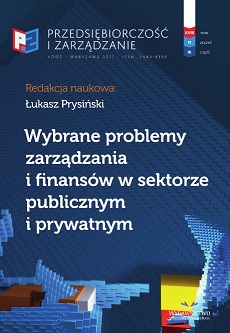Zmiany w rentowności skarbowych obligacji argumentem za zwiększeniem wartości elastycznej linii kredytowej dla Polski w MFW
The Changes of the Government Bonds’ Yield as an Argument Supporting the Increase of Value of the IMF’s Flexible Credit Line for Poland
Author(s): Magdalena RedoSubject(s): National Economy, Governance, Financial Markets, Public Finances, Fiscal Politics / Budgeting
Published by: Społeczna Akademia Nauk
Keywords: flexible credit line; foreign exchange reserves; economic credibility; cost of capital; government bond yield;
Summary/Abstract: The Flexible Credit Line (FCL) of the International Monetary Fund seems to fulfill its role as a crisis-prevention tool to stabilize and strengthen the economic credibility of the countries. The analysis of the correlation between the government bonds’ yield changes in Poland and other countries of Central and Eastern Europe in the years 2006-2017 presents a stabilizing effect of the first two FCL agreements (from May 2009 and January 2011), resulting in a smaller increase (or a stronger decrease) in the market cost of capital in Poland (i.e. in the decrease of the correlation’s strength of changes in the level of profitability of government bonds’ yields). The effectiveness of the FCL seems to be also confirmed by the increase in convergence of changes in the level of government bonds’ yields in Poland and other countries of the CEE region observed after the first Polish proposal on the reduction of the value of the FCL (in January 2015), signaling the beginning of Poland’s withdrawal process from the insurance in the IMF. The above results are an argument for using the FCL with higher value than before and at the same time more active investing some parts of the foreign exchange reserves in order to gain higher profitability.
Journal: Przedsiębiorczość i Zarządzanie
- Issue Year: 18/2017
- Issue No: 11.3
- Page Range: 79-93
- Page Count: 15
- Language: Polish

